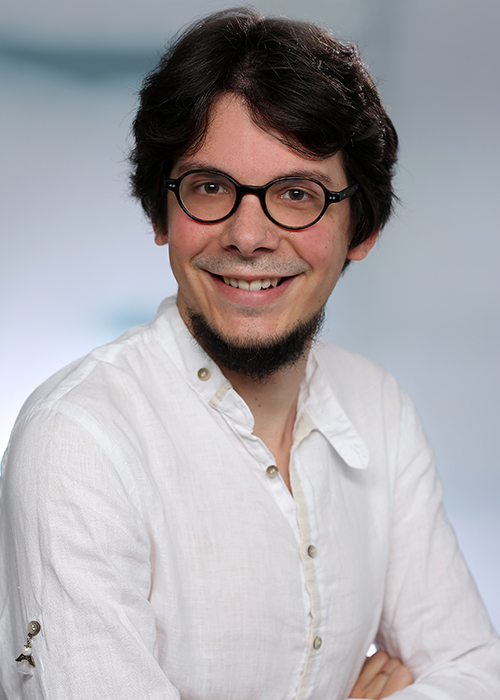BACK TO RESEARCH WITH IMPACT: FNR HIGHLIGHTS
BACK TO RESEARCH WITH IMPACT: FNR HIGHLIGHTS
Looking at popular culture, big tech and ongoing societal debates – technological progress in Artificial Intelligence (AI) affects us all. Researchers from numerous scientific fields are working on the best way to bring AI forward, including the study of systems able to autonomously reason over arguments – calculators for philosophical, ethical or legal debates.
Technological possibilities and their availability are increasing rapidly, raising important challenges: What does explainability, fairness, and transparency mean for autonomous systems and how can we model these fundamental notions in a way that machines can deal with them?
“The fascinating aspect about my work is its universality: Logic is everywhere around us, in different forms and shapes. Automated reasoning has been around since the very beginning of AI research, and logic is a topic since the ancient Greeks”, explains Computational logician and AI researcher Dr Alexander Steen, continuing:
“Still, modern logic has become more diverse and inclusive: We now try to capture intuitive notions of philosophical, moral, legal and common-sense reasoning – which is in a sense much harder than purely mathematical logic – and to let a machine autonomously reason about these aspects.
“With progress of technological possibilities, the importance of rational, reliable and fair autonomous systems will continuously grow.”
Automating logical reasoning
Dr Steen studies the theoretical and practical aspects on how to automate and implement logical reasoning, with a particular focus on interdisciplinary contexts: normative and legal decision-making and philosophical arguments.

“The underlying idea is to provide quite general means for AI-assisted reasoning, and to simulate domain specific requirements within that framework. This way, e.g. ethical and legal discourses can be made explicit and addressed by autonomous systems. I am positive that this contributes to explainable and transparent AI systems that are urgently needed.”
The ubiquity of AI and the fact that no scientist can be an expert in every field means AI is an interdisciplinary field at heart. The expertise in the research group Dr Steen is associated with reflects this, bringing together Lawyers, Logicians, Mathematicians, Computer Scientists, Philosophers and Engineers – supplemented by expertise in the other faculties.
Dr Alexander Steen is a Postdoc at the University of Luxembourg and Principal Investigator of the CORE Junior project ‘Automated Reasoning with Legal Entities (AuReLeE)’




MORE ABOUT ALEXANDER STEEN
On milestones
“I am quite happy that my theorem prover Leo-III, developed during my PhD studies, won the world championships in Natal, Brazil, in 2019. Recently, I was honoured to win a best paper award for joint work with a colleague of mine in the area of applying logical reasoning to law.”


On the unpredictability of AI
“AI systems are complicated and intricate pieces of software, and sometimes even the developers cannot fully predict what they will do. In my own system, Leo-III, I once found a plain implementation error. However, after I resolved it, the system performed worse than before. Why? I’m not sure …”
On collaborations
“I work at the University of Luxembourg at the “Individual and Collective Reasoning” research group. Here, I work with my colleagues on different projects around logical reasoning. Relevant partners include the Freie Universität Berlin (Berlin, Germany) and the University of Miami (USA) for system development and standardization.”
On being driven by curiosity
“Above all, I’m driven by curiosity. This makes me spending time far beyond agreed working hours to deal with research challenges. I’m intrigued by fundamental theoretical questions and I’m eager to get things running on the computer. The world needs more logic, I’m trying to contribute to this.”
On his research in a nutshell
“I’m working in the field of computational logic, knowledge representation and reasoning, and AI: I study the theoretical and practical aspects of automated theorem provers and deduction systems in general, along with algorithmic aspects. This includes research in semantics, proof theory, data structures and decision procedures. More precisely, I’m automating higher-order logic (type theory) and non-classical logics.”
Personal website: https://alexandersteen.de | Website of the ICR research group: https://icr.uni.lu
On Luxembourg and its interdisciplinarity
“Luxembourg lies in the heart of Europe, with a unique mixture of people within and outside of the University. I’ve never seen a research group like the one I am associated with now: Lawyers, Logicians, Mathematicians, Computer Scientists, Philosophers and Engineers – with even more expertise in the other faculties.”
About Spotlight on Young Researchers
Spotlight on Young Researchers is an FNR initiative to highlight early career researchers across the world who have a connection to Luxembourg, with nearly 100 features published since 2016.
More in the series SPOTLIGHT ON YOUNG RESEARCHERS


RELATED FUNDING